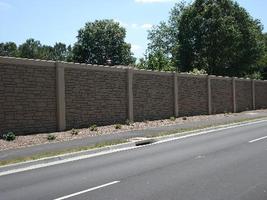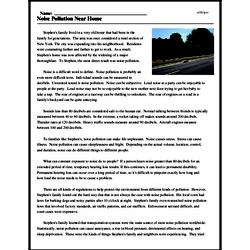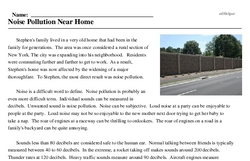Noise Pollution Near Home
Stephen's family lived in a very old home that had been in the family for generations. The area was once considered a rural section of New York. The city was expanding into his neighborhood. Residents were commuting farther and farther to get to work. As a result, Stephen's home was now affected by the widening of a major thoroughfare. To Stephen, the most direct result was noise pollution.
Noise is a difficult word to define. Noise pollution is probably an even more difficult term. Individual sounds can be measured in decibels. Unwanted sound is noise pollution. Noise can be subjective. Loud noise at a party can be enjoyable to people at the party. Loud noise may not be so enjoyable to the new mother next door trying to get her baby to take a nap. The roar of engines at a raceway can be thrilling to onlookers. The roar of engines on a road in a family's backyard can be quite annoying.
Sounds less than 80 decibels are considered safe to the human ear. Normal talking between friends is typically measured between 40 to 60 decibels. In the extreme, a rocket taking off makes sounds around 200 decibels. Thunder rates at 120 decibels. Heavy traffic sounds measure around 90 decibels. Aircraft engines measure between 100 and 200 decibels.
To families like Stephen's, noise pollution can make life unpleasant. Noise causes stress. Stress can cause illness. Noise pollution can cause sleeplessness and fright. Depending on the actual volume, location, control, and duration, noise can do different things to different people.




